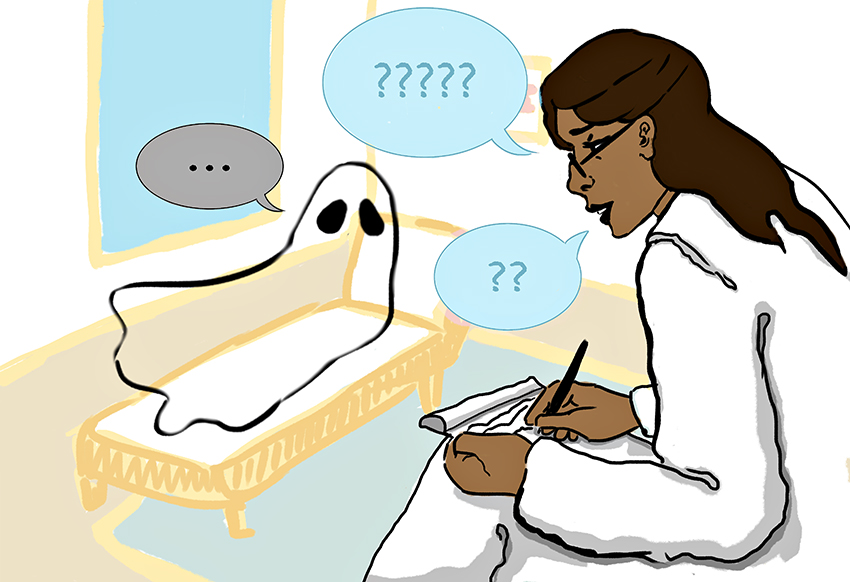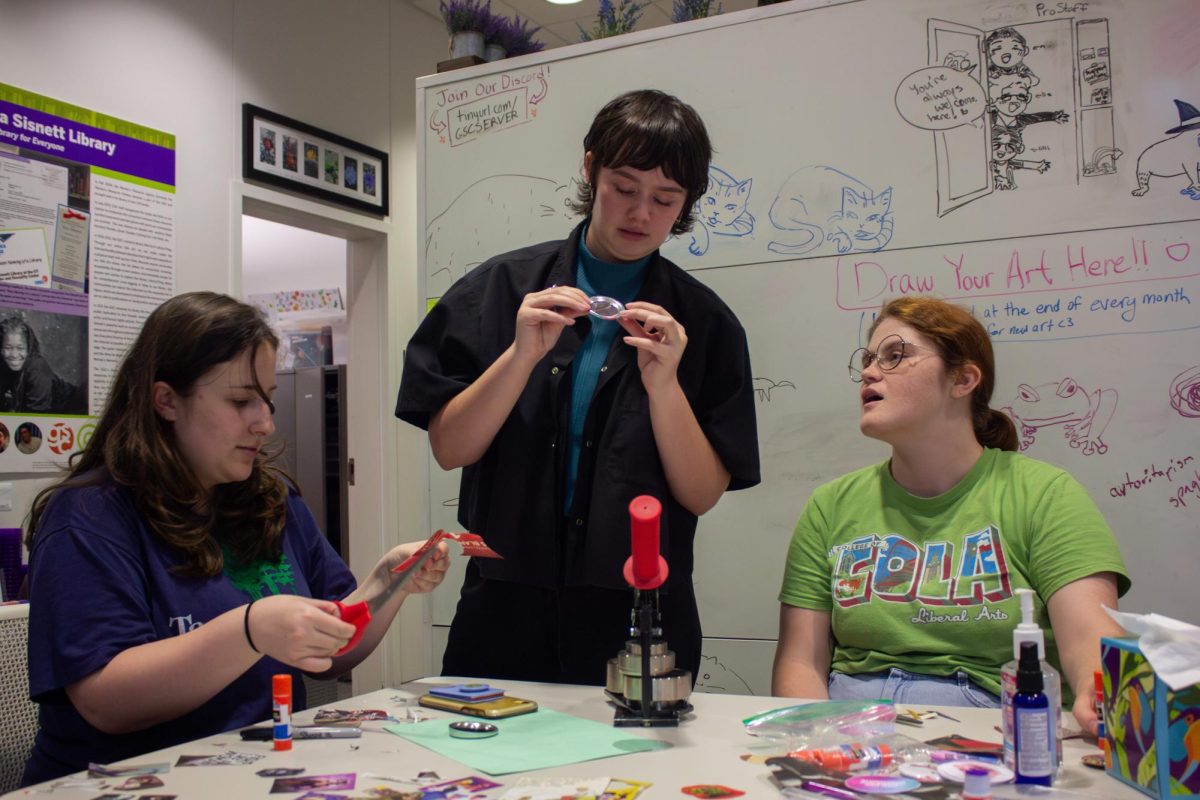In a world where dating now equates to swiping left or right on Bumble or Tinder, “ghosting” has become an obstacle to the formation of new romantic relationships.
“Ghosting” occurs when someone in a personal relationship unexpectedly cuts off forms of communication. This practice has become a staple of millennial dating experiences everywhere, including those on the 40 Acres.
For instance, psychology freshman Mana Singri said she has had experiences related to ghosting on social media applications.
“There have been many instances where I’d be direct-messaging someone on social media, and after hearing something I don’t really like, I wouldn’t respond,” Singri said. “Now, ghosting is such a normality that people are becoming personally detached from it.”
Though he hasn’t personally ghosted or been ghosted, psychology sophomore Alex Barshop said he does know of instances where his friends had been ghosted.
“Essentially, when you’re ghosted, someone has just devalued you,” Barshop said. “None of us really like rejection, and it’s even worse because you don’t get any closure.”
As an aspect of modern dating culture, ghosting tends to have emotional consequences for those on both sides of the situation. While emotions might blur judgment, psychology does its best to explain ghosting from the perspective of the “ghoster” and “ghostee.”
To Gili Freedman, a postdoctoral researcher at Dartmouth and doctoral recipient from UT, ghosting can be connected to a person’s “growth beliefs,” and “destiny beliefs” affect their views on relationships.
“If you think that you should find your soul mate, you have stronger destiny beliefs,” Freedman said. “If you think that relationships change over time and should be tended to like a garden, you have stronger growth beliefs.”
Part of Freedman’s research has focused on the relationship between a person’s destiny beliefs, growth beliefs and their potential to ghost. Freedman’s research found that people with stronger destiny beliefs were more likely than people with stronger growth beliefs to ghost.
“If (someone with strong destiny beliefs) realizes their relationship isn’t the right relationship, (they) might be okay with ending it somewhat abruptly,” Freedman said. “(However), people with stronger growth beliefs might think that ghosting isn’t a proper way to end a relationship.”
Freedman said growth beliefs and destiny beliefs might also affect a ghostee’s response to being ghosted.
“If you have stronger destiny beliefs and more positivity towards ghosting, it’s likely that you’d still feel that way when you are ghosted,” Freedman said.
Singri said ghosting can be explained through attachment theory. Attachment theory divides child attachment into four categories: secure attachment, insecure-ambivalent attachment, insecure-avoidant attachment and disorganized attachment. Each type of attachment has differing effects on a person’s personal development and relationships.
Singri said while people with secure attachments desire to be in a committed relationship, people with disorganized attachments might want to explore the opportunities laid out before them.
“(For people with disorganized attachments), it’s a matter of not knowing how to deal with people and social relationships,” Singri said. “Having to explain and vocalize why they don’t like someone when it’s just easier to cut it off is part of why disorganized attachment is associated with ghosting.”
Though ghosting can be explained with many psychological theories, its effectiveness in ending a relationship varies according to source. Barshop said he thinks other means of relationship termination are better for both parties involved.
“Going through the healthy process of saying, ‘Hey, this isn’t going to work out,’ is all they need to say,” Barshop said. “That process, instead of ghosting, would at least open up a channel of communication for the future.”





















